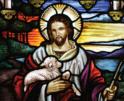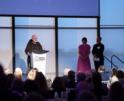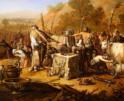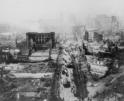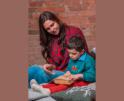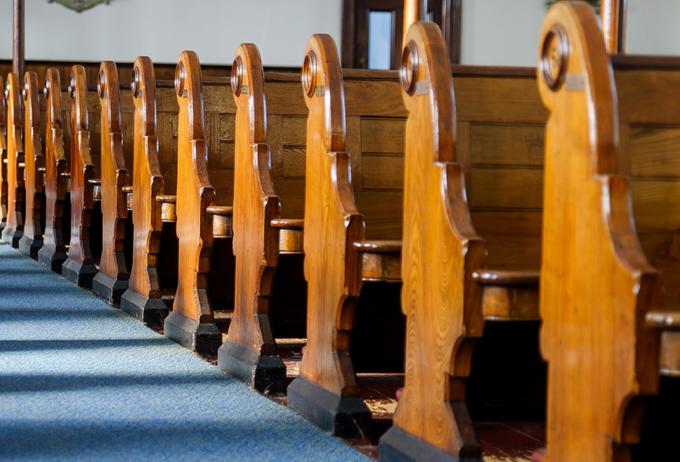
Culture
... for several Sundays in a row, when Fields arrived at the church, he found Tighe sitting in his place and refusing to move. This prompted Fields to take Tighe to court on grounds of trespassing.
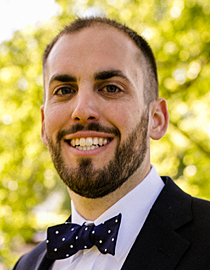
Lester
On Monday, Jan. 11, 1854, Bishop John Fitzpatrick of Boston recorded in his journal that he was summoned to appear as a witness in the case of Fields v. Tighe in the Justices' Court for the County of Suffolk (Massachusetts).
The case centered around Sts. Peter and Paul Church in South Boston. Nine years earlier, to alleviate the overcrowding of St. Augustine Church in South Boston, its pastor, Father Terence Fitzsimmons, had purchased land on Broadway and constructed Sts. Peter and Paul Church, which was dedicated July 13, 1845. Built in a gothic style out of Quincy granite, and with a tower rising 86 feet high, the magnificent building was completed at an equally impressive cost of $65,000.
Just over three years after its dedication, on Sept. 8, 1848, the church was consumed by a fire, leaving only a few partial walls standing. Fortunately, only a short time prior to this, Bishop Fitzpatrick had taken out an insurance policy of $40,000.
Returning to Bishop Fitzpatrick's journal entry, he writes that the insurance policy was paid out to him in full and, after paying off the debts owed by the church, only about $8,000 remained. A new church was commenced but, without sufficient funds, took several years to build and was finally ready for use on Nov. 24, 1853.
Fields v. Tighe revolved around an argument over pew rents and how pews in the new church would or would not be assigned to pew owners from the original church. Pew rent was a fee parishioners could pay which, in return for providing regular financial support for the church, provided them with a reserved seat or seats for their use at all services; those closer to the altar were more expensive than those in the rear or gallery.
When the new Sts. Peter and Paul opened, at his discretion, Bishop Fitzpatrick gave some pews to former pew owners, mostly those of limited means who could barely afford their pews in the original church and "were worth of such a favor."
Two or three were also given to those of a "factious spirit," among whom were Tighe, whom the bishop described as a "man who appears to be ignorant and even brutal." Angry about the removal of the popular Father Fitzsimmons from the parish, Tighe had "disturbed the public services in the church at the time of High Mass" and, finding him unwilling to listen or atone for his indiscretions, the bishop refused him the right to rent a pew in the new church.
The pew in the new church with the same number as the one Tighe had occupied in the old church was now owned by Philip Fields, the sexton of Sts. Peter and Paul, and for several Sundays in a row, when Fields arrived at the church, he found Tighe sitting in his place and refusing to move. This prompted Fields to take Tighe to court on grounds of trespassing.
Bishop Fitzpatrick's stance is recorded in his journal. He states that the insurance policy on the original church was taken out in his name, "paid out of the string and proper revenues of the church," and not intended to offer "any recourse to the pew owners." Furthermore, the policy was by no means enough to cover the cost of the building and would have been even less if all pew owners were paid the total sum they had contributed for their respective pews.
"For these reasons," he writes, "it appears evident that the property of the pew owners perished at the time of the fire and the loss was theirs," and declared that no former pew owner had any right or claim to a pew when the new church was completed. He added to his reasoning that, in regards to contributing funds for the construction of the new church, pew owners of the original church did not help any more or less than those of who had not rented pews, so they had equal right to own a pew in the new church.
Bishop Fitzpatrick was summoned by Tighe's attorney for questioning and, according to the bishop's entry, the case was decided that day, with Judge Thomas Russell determining that Tighe had no right to claim a pew in the new church.
- Thomas Lester is the archivist of the Archdiocese of Boston.
Recent articles in the Culture & Events section
-
The example of the Good ShepherdMichael Reardon
-
Spring Celebration Gala will honor Cardinal O'MalleyShannon Lyons
-
Scripture Reflection for April 28, 2024, Fifth Sunday of EasterDeacon Greg Kandra
-
Boston and the nation respond to the San Francisco Earthquake of 1906Thomas Lester
-
See you in the storyLaura Kelly Fanucci

